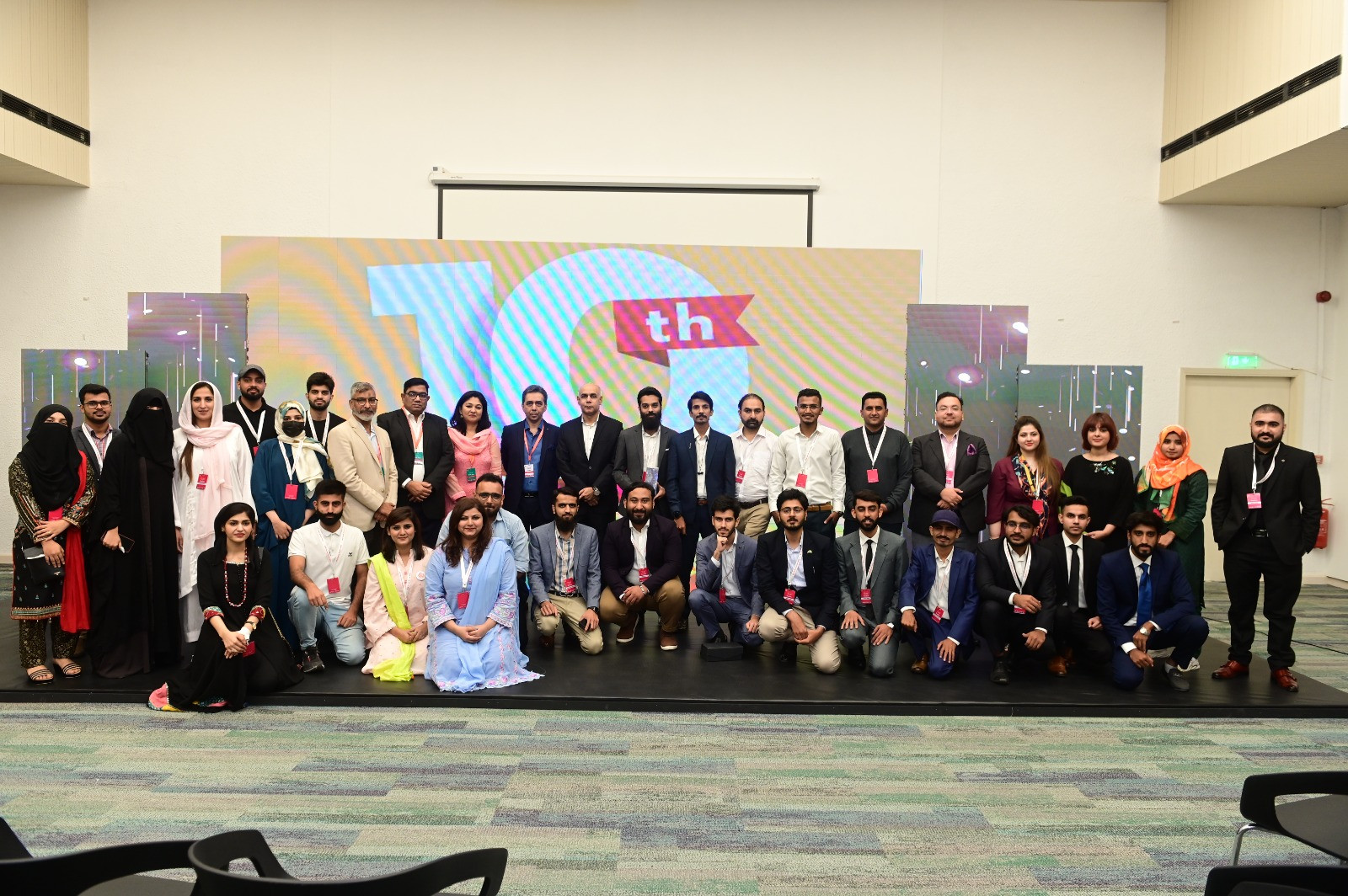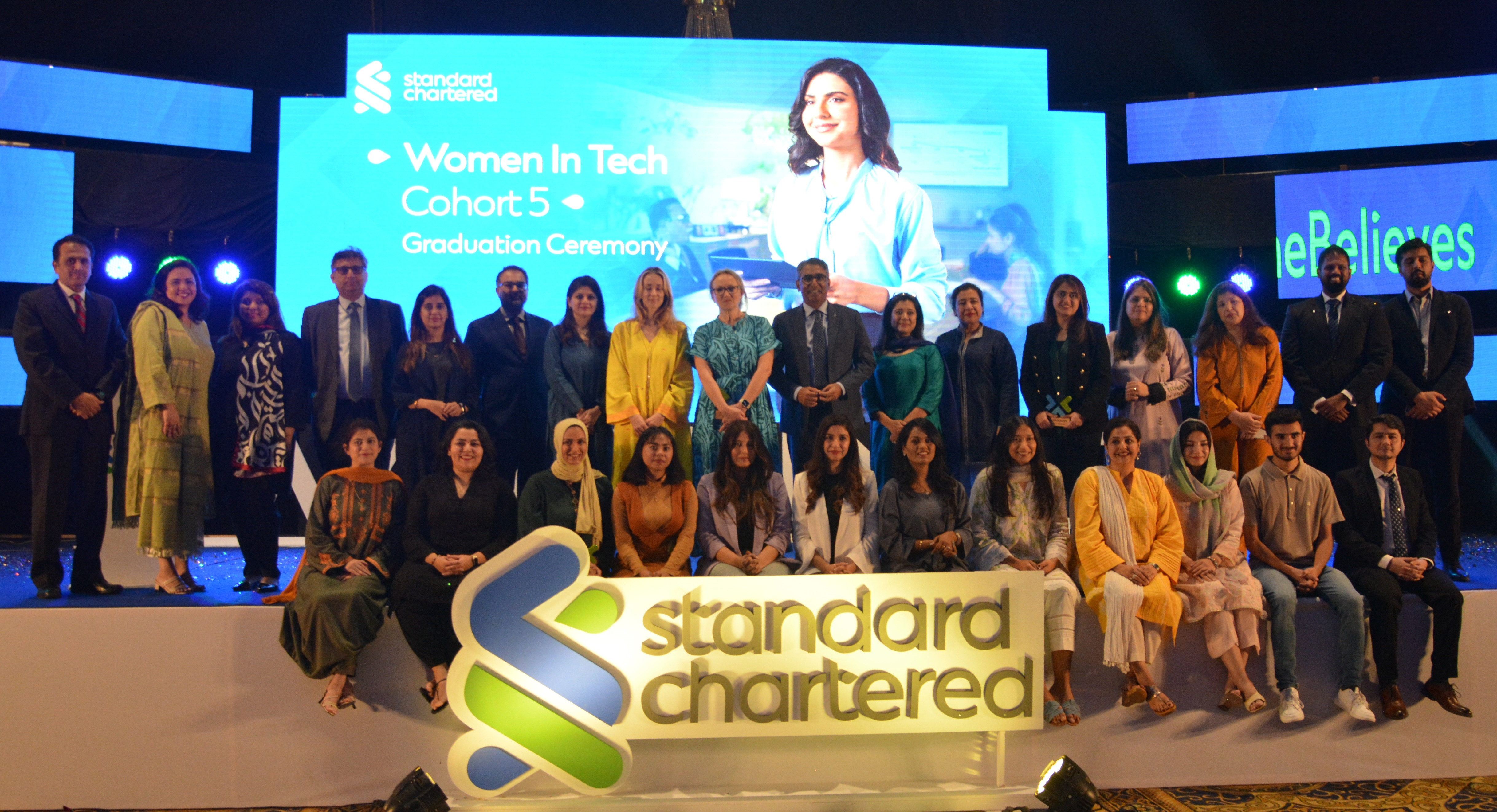The unfazed spirit of Pakistan’s enterprising dreamers
Despite an unstable market, young Pakistani entrepreneurs are willing to invest in startups and fulfill market demands

The economic challenges faced by Pakistan this year have been substantial, with a sharp contraction of 0.6 per cent in GDP attributed to factors such as the floods of 2022, import restrictions, domestic political uncertainty, and escalating commodity prices. Amidst this financial turmoil, young Pakistani entrepreneurs are acting as potential catalysts for economic revival. However, even this sector has not been immune to the crisis.
It was not long ago when Pakistan’s startup ecosystem delivered excellent performance. In 2021, we had Airlift which raised 85 million dollars in Series B financing — the largest single private funding round in Pakistan's history. Things took a dramatic turn when the company announced to shut its operations owing to global recession. This hurt countries like Pakistan with full force.
In the second quarter of 2023 (April-June), the funding landscape for startups in Pakistan experienced a significant downturn. Only eight deals were successfully secured during this period, marking a notable decline in comparison to previous quarters. This trend persisted into July 2023, when startups managed to attract a mere 5.2 million dollars in funding.
Yet, the declining situation has not shattered the confidence of youngsters who want to stand their ground as entrepreneurs. Some young startup owners have been able to build successful ventures.

Initial challenges
“When it came to the challenges of starting a business, I thought the seed money, office space or logistics would be the first challenge,” said Muhammad Usama Afzal, who runs Magnus Electric Vehicles (Pvt.) Ltd. But launching his own business gave him a reality check. “The non-supportive behaviour of people close to you is the very first obstacle,” Afzal said. The tech entrepreneur started the E-vehicles business to combat the rising costs of fuel and alarming levels of pollution in Pakistan. His parents encouraged him to find a more conventional and lucrative job instead of what looked like “cycle work” as most of his income went towards keeping Magnus EV afloat. It didn’t help when a neighbour taunted his parents by calling Afzal “a mechanic”.
Family are not the only ones you have to convince, of course. In tech and product manufacturing businesses, it is not easy to convince clients to accept innovative methods over set methods. The co-founders of Bendcrete Construction Services (Pvt.) Ltd, Touqeer Ahmed and Sikandar Ali Khokhar, who have established the first-ever company in Pakistan to provide consultancy services for bendable concrete, faced difficulty in convincing the construction industry to shift from conventional methods. Normally steel plates are used in bridge joints that can damage columns and pillars in rain. Touqeer Ahmed said his company proposed using link slabs instead as they leave no gaps for water leakage. After a lot of effort, they are in talks with the Tunneling Institute of Pakistan, but the National Highway Authority (NHA) is still not on board. Touqeer Ahmed maintains their solution can save up to 30 percent cost and the NHA can save a substantial amount on their annual budget. "There is mistrust of new ideas despite how efficiently we present them," the duo shared.
Afzal also pointed out the challenge of testing ideas in practical form. According to him, a tech entrepreneur conceives an idea but has limited access to machinery to build a prototype for testing.
For both Bushra Latif, founder of Nani.pk, and Sehrish Raza, the brain behind Bizb Store, securing funding was the most difficult as investors show a lot of scepticism towards women. "As a woman, I faced the barriers of being taken seriously. We face questions about the future of business when we'll get married and have a family," Raza shared.
A report by Invest2Innovate indicated that in the past seven years, only 1.4 percent of all investments went towards women-led startups. Moreover, Pakistan has the lowest rates of female entrepreneurship, with only one percent of women owning a business as opposed to 21 percent of men.
"I think, for women entrepreneurs, male supporters within the family who can tell them that gender is not a barrier are very necessary," said Maira Siddiqui, who runs Chiragh Education. She highlighted the role of male figures in the success of female entrepreneurs, like her father, who helped her take on the challenges of launching her startup.
Sacrifices and risks
Muhammad Ahmed is the mastermind behind InLights, a venture developing an Intelligent Transportation System for optimized traffic timings to reduce congestion. The biggest risk for an entrepreneur, according to him, is finances as there is no assurance of success as a sustainable business. In the current market, the rupee’s devaluation, the rise in inflation, and an uncertain investment environment have created significant challenges for entrepreneurs. The co-founders of Bendcrete Construction Services advised to control risk factors like finance and resources with sound market research.
However, the women entrepreneurs focused on the effects of an entrepreneurship journey on one’s personal life and mental health. Latif and Raza, the brain behind Bizb Store, shared that high stress levels and long working hours have a severe impact on health and personal life, hence, not everyone can take up this path. "We often find ourselves deeply engrossed in work. This intense focus on work can cause [one to] neglect personal and family life, potentially leading to isolation and lack of support during challenging times," Raza said.
Siddiqui, who runs Chiragh Education Technologies which aims to decolonise Pakistani education by animating and gamifying education in Urdu and other Pakistani languages, agreed. As a woman, entrepreneurship is an extremely stressful process. "My married life will begin soon and I face the challenge of creating a work-life balance," she said. Many women face the issue of caring for their children as well as their work, Siddiqui added. She expressed a desire to see more working spaces where women can bring in their children.
“Entrepreneurship is a 24-hour job,” added Muhammad Ahmed. You cannot look upon it as a hobby. Magnus EV’s Afzal holds the view that current entrepreneurs pursued the challenging journey because they are not cut out for a nine-to-five mindset. "It's all about the mindset. Entrepreneurs have an inbuilt ability to become job providers," Afzal said confidently.
A rocky road
Muhammad Ahmed considers the realm of Pakistan very difficult to conduct business practices. In his experience, some small but peculiar problems like the culture of advance payments, roaming to attain due payments and sometimes facing people using unlawful measures are hard to overcome.
Add to that, the social-political upheavals create more issues for entrepreneurship. Latif recalled the incident of complete internet shutdown in Pakistan, and highlighted the troubles it caused for businesses. Since her venture Nani.pk is a parenting platform that combines doula services with a curated e-commerce marketplace for childcare, especially for remote areas, she was following the situation very closely. "That whole period was upsetting. The shutdown not only disrupted the business but, on a larger scale, it pushed back international investors," she said.
Conducting business in Pakistan becomes more complex due to the lack of streamlined processes for business registration, licenses, and permits, which becomes a significant impediment for entrepreneurs.
Touqeer Ahmed and Khokhar pointed out the shortcomings of the Pakistan Engineering Council (PEC) for tech startups. "The PEC does not issue a services and consultancy license to a company before five years," they explained. "Young tech entrepreneurs choose to move abroad due to these regulations and legalities problems."
Somewhat the same problem was faced by Raza. Her venture Bizb Store is a digital marketplace for buying and selling pre-loved apparel and accessories with currently 18,000 financially empowered sellers. When trying to register with the Securities and Exchange Commission of Pakistan (SECP) which regulates the formation of companies and grants licenses for licensed businesses, she ran into trouble when the SECP demanded a physical sign of her partner sitting in Singapore rather than accepting a digital one. She had to ship the documents, which ultimately cost her time and resources.
Siddiqui had mixed views on the performance of the SECP and the Federal Bureau of Revenue (FBR). According to her, SECP has shown progress but has room for improvement. "We are still behind in Ease of Doing Business rankings," Siddiqui said. "Moreover, the taxing system gets complicated when the location of office and production unit differs. The FBR is working on IRS 2.0 and we hope for a streamlined process," she said optimistically.
The Bendicrete owners, Muhammad Ahmed, and Afzal showed confidence in the tax measures by the government. They appreciated the scheme of tax waiver for entrepreneurs but demanded a more comprehensive plan for other regulations.
Other than the regulatory hurdles, there are several organisational battles. Building a core team for a successful venture is one of them. Muhammad Ahmed had a progressive view. He suggested that developing a team is a gradual step, and entrepreneurs should not be scared of the evolutionary process.
According to Raza, there is no magic formula to team building; it takes patience. Meanwhile, Latif offered equity and long-term incentives to attract the right talent.
Touqeer Ahmed and Sikandar Khokar suggested the utilization of incubation centres to find talented individuals. They reckoned that incubators affiliated with universities can provide individuals seeking opportunities.

Incubators and startup competitions
A research published in the City University Research Journal of the City University of Science and Information Technology (Peshawar) discussed that business incubators are good at providing networking and consultancy along with training, marketing and infrastructure to a startup.
Latif agreed that incubators added value in the form of networking. "In business, the network is your net worth. It also helps in building resources and connections. Their support and mentorship do provide help to young businesses," she shared.
Emerging startup competitions are another useful stepping stone. "The startup competitions are the best thing that happened to Pakistan. They help businesses to gain visibility and connect relevant people," Raza said enthusiastically.
Muhammad Ahmed, Touqeer Ahmed and Khokhar are winners of the Shell Tameer Awards 2023. They discussed the business knowledge they gained from the competition and the impact of price money on their business. "Shell Tameer was better than other competition because of monetary value," Touqeer Ahmed said. "The prize money helped us attain the International licenses for Chartered Engineers from the UK," Khokar added.
Muhammad Ahmed shared how the journey of the startup competition and winning it helped him carry out business operations. "The prize money was a great boost that allowed us to carry operations in a better manner. Moreover, the networking and feedback of judges also helped to correct ourselves and excel further," he said.
Siddiqui recently won Standard Chartered Bank’s Women In Tech competition. She discussed how the experience can be helpful. "Startup competitions like Women In Tech teach a lot about business insights through workshops, networking, and assignments. This whole journey was hard, but made me focus on points that I was neglecting," she shared.
From the overall feedback, it became evident that Pakistan needs more incubators and startup competitions for networking and better assessment of their startups.

Teaching entrepreneurship
Touqeer Ahmed and Sikandar Khokhar recalled seeing young graduates choose entrepreneurship after witnessing success stories, only to call it quits in a few months. Being fascinated with entrepreneurship is merely not enough to achieve success, all the interviewees unanimously said. They stressed that entrepreneurship courses taught in universities play no part in imparting the necessary skills to a student who wishes to run their own startup.
Touqeer Ahmed expressed disappointment in the teaching methods he has seen. "We need experts from specific industries that can help us gain more knowledge. I wish to return to my institute and teach tech entrepreneurship," he said, having a technical education background himself. Raza added that learning from real-life experiences can help passionate students network with investors and build businesses. She hoped that successful entrepreneurs will embrace the role of lecturers. "The life stories and failures faced by successful entrepreneurs hold a lot of wisdom for students," Afzal agreed.
Siddiqui has taken up the role of teaching entrepreneurship. She briefed that her course at KSBL assures giving hands-on experience to students. "It is good to see that some institutes like Institute of Business Management (IoBM), Institute of Business Administration (IBA), DHA Suffa University and others have started to focus on revamping entrepreneurship courses," Siddiqui said. Meanwhile, Muhammad Ahmed said, "A person who spent years in building a business can give so much great knowledge."
To conclude, Pakistan's startup ecosystem has great potential but is facing hardcore challenges. However young entrepreneurs have not succumbed to the situation and are determined to prove themselves. With more start-up competitions, offering funding, effective mentorship, addressing regulatory barriers, increasing the number of incubation programmes, and developing a conducive environment for the growth, the startup scene in Pakistan will only thrive.
Zain Aijaz is an award-winning freelance contributor who focuses on social initiatives, community services, entrepreneurship and the corporate sector
All information and facts are the responsibility of the writer


















COMMENTS
Comments are moderated and generally will be posted if they are on-topic and not abusive.
For more information, please see our Comments FAQ